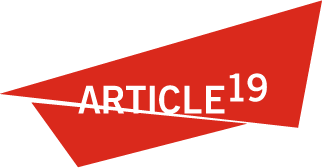
This year’s International Day for Universal Access to Information, the theme of which was “The Right to Know – Building Back Better with Access to Information”, took place against a backdrop dominated by COVID-19 and its wide-ranging impact, including the right to access quality information. At the same time, it was also celebrated in a context of hope, particularly in the Gambia and Senegal, ignited by the adoption of an access to information law by The Gambia in August 2021 and the Senegal’s validation that same month of its National Action Plan (NAP) within the framework of the Open Government Partnership (OGP). The National Action Plan is a strategic document developed in open collaboration and consultation with civil society to promote transparency in public action, in accordance with the commitments made by the State in the framework of the OGP.
ARTICLE 19, the Institut Panos Afrique de l’Ouest (IPAO) and other civil society organisations welcome these developments. ARTICLE 19 welcomed the adoption of the access to information law in The Gambia and Senegal joining the OGP and called on the government of Senegal and other countries in the sub-region that have not yet done so to adopt an access to information law and join the OGP and other transparency initiatives as soon as possible.
Access to information is a fundamental human right that is essential for democracy, transparency and accountability in the governance of public affairs. Most African constitutions and international human rights instruments guarantee this right, including Article 19 of the International Covenant on Civil and Political Rights and Article 9 of the African Charter on Human and Peoples’ Rights. The right of access to information plays an essential role in the fulfilment of other human rights, such as the right to health, which is particularly important in the current context dominated by the COVID 19 pandemic.
The Declaration of Principles on Freedom of Expression and Access to Information in Africa emphasises that access to information is about ensuring that citizens have the information they need to participate effectively in political developments and decision-making processes.
“Everyone has the right to know in order to participate effectively in public life, to make informed decisions, to have their opinions heard and to demand accountability. The establishment of more democratic and stable societies is fundamental to sustainable development. It is therefore important that governments that have not yet adopted an access to information law make this a priority. Countries that already have an access to information law must ensure its effectiveness by putting in place appropriate legal frameworks, including independent oversight bodies and complaints mechanisms to promote the full enjoyment of this right by citizens,” said Alfred Nkuru Bulakali, Deputy Regional Director of ARTICLE 19 West Africa.
The commitment of states to transparency mechanisms as a catalyst for access to information
The willingness of several states to improve governance and transparency is illustrated by their adherence to various international and regional mechanisms and instruments, such as the Open Government Partnership, the Extractive Industries Transparency Initiative (EITI), the African Charter on Democracy, Elections and Governance and the African Union Convention on Preventing and Combating Corruption, among others. These international and regional mechanisms and instruments all serve the common goal of encouraging states to promote citizen participation, transparency, access to information, freedom of the press and accountability in the management of public affairs.
However, the impact of these for African states, including those in west Africa, remains slow to materialise, especially countries in Africa and the sub-region that have adopted an access to information law but are yet to fully implement them and support independent and efficient oversight bodies.
“ARTICLE 19 welcomes the adoption of an access to information law in The Gambia. Beyond formalising, it is essential that the government put in place effective and timely mechanisms for the disclosure by public authorities of the information that citizens need to fully enjoy their right and for the media to play its role of watchdog in the conduct of public affairs, particularly in election contexts and truth-seeking about past human rights violations.
It is important for the government to ensure that the implementation mechanisms are available and accessible, and that redress mechanisms are independent, so that this law is effective,” Alfred Nkuru Bulakali said.
In turn, Abdoulaye Ndiaye, the acting General Director of the Panos Institute for West Africa, highlighted the need to ensure an inclusive implementation of this law :
“The African Charter on Human and Peoples’ Rights emphasises that access to information is a fundamental human right recognised for all and that no one should be favoured or disadvantaged in the exercise of this right on the basis of gender, race or any other discriminatory basis cited in many other international and regional mechanisms and national constitutions.”
For the effective implementation of the access to information law, it is crucial to consider the specific characteristics of vulnerable groups, particularly women, minorities and people with disabilities, to allow them to benefit from all the advantages of the law and to improve their participation in the management of public life.”
Efforts to strengthen transparency and good governance to be welcomed
Senegal delayed the adoption of an access to information law. The mobilisation of civil society and other non-state actors for more than 10 years, combined with the country’s adherence to various transparency mechanisms, notably the EITI and the OGP, have not yet resulted in the Government adopting an access to information law that will contribute to strengthening transparency, democracy, citizen participation, accountability and the fight against corruption. However, the adoption in August 2021 of the National Action Plan within the framework of the Open Government Partnership (NAP-OGP) is an opportunity for Senegal to continue the efforts in favour of good governance as well as the dynamics undertaken to improve the management of public affairs for the benefit of the population.
Indeed, the NAP provides for voluntary commitments by the country to strengthen its efforts to promote transparency in public action and its openness to new forms of consultation and collaboration with civil society and citizens. The first aspect of these commitments is to increase transparency in public management and access to information.
The placement of access to information as the first focus of Senegal’s commitments in the NAP-OGP is indicative of the crucial role that access to information plays in promoting a more balanced society and good governance.
“The adoption of the NAP-OGP by Senegal is welcomed and ARTICLE 19 calls on the government to use this opportunity to fulfil its commitments not only under this program, but also under all the international and regional mechanisms and instruments to which the country has freely consented. The adoption and effective implementation of a law on access to information will greatly contribute to reducing the prevailing tense political and social climate in the country and strengthen the level of trust in institutions, improve transparency in the management of public goods and provide public access to information, which is a guarantee of accountability and a driving force for citizen participation.
“In an environment where COVID-19 is predominant and where its impact on health, social and economic life have not yet been fully assessed, it is essential that Senegal quickly adopt a law on access to information in order to fight disinformation, which is a major threat in the fight against the pandemic.
For the second year in a row, IDUAI is being commemorated within the context of COVID 19. The adoption of a law on access to information in Senegal and in other countries will help to comfort the population, by ensuring they have access to institutions from which they can request and receive credible information that is essential to the prevention of COVID 19 and that transparency and accountability will improve for better governance,” concluded Alfred Bulakali.
For more information please contact :
Alfred NKURU BULAKALI, Deputy Regional Director ARTICLE 19 Sénégal/West Africa at E: alfredbulakali@article19.org T: +221 33 869 03 22 or
Abdoulaye NDIAYE, Acting General Director Institut Panos Afrique de l’Ouest at abndiaye@panos-ao.org Tel:+221 33 849 16 66
